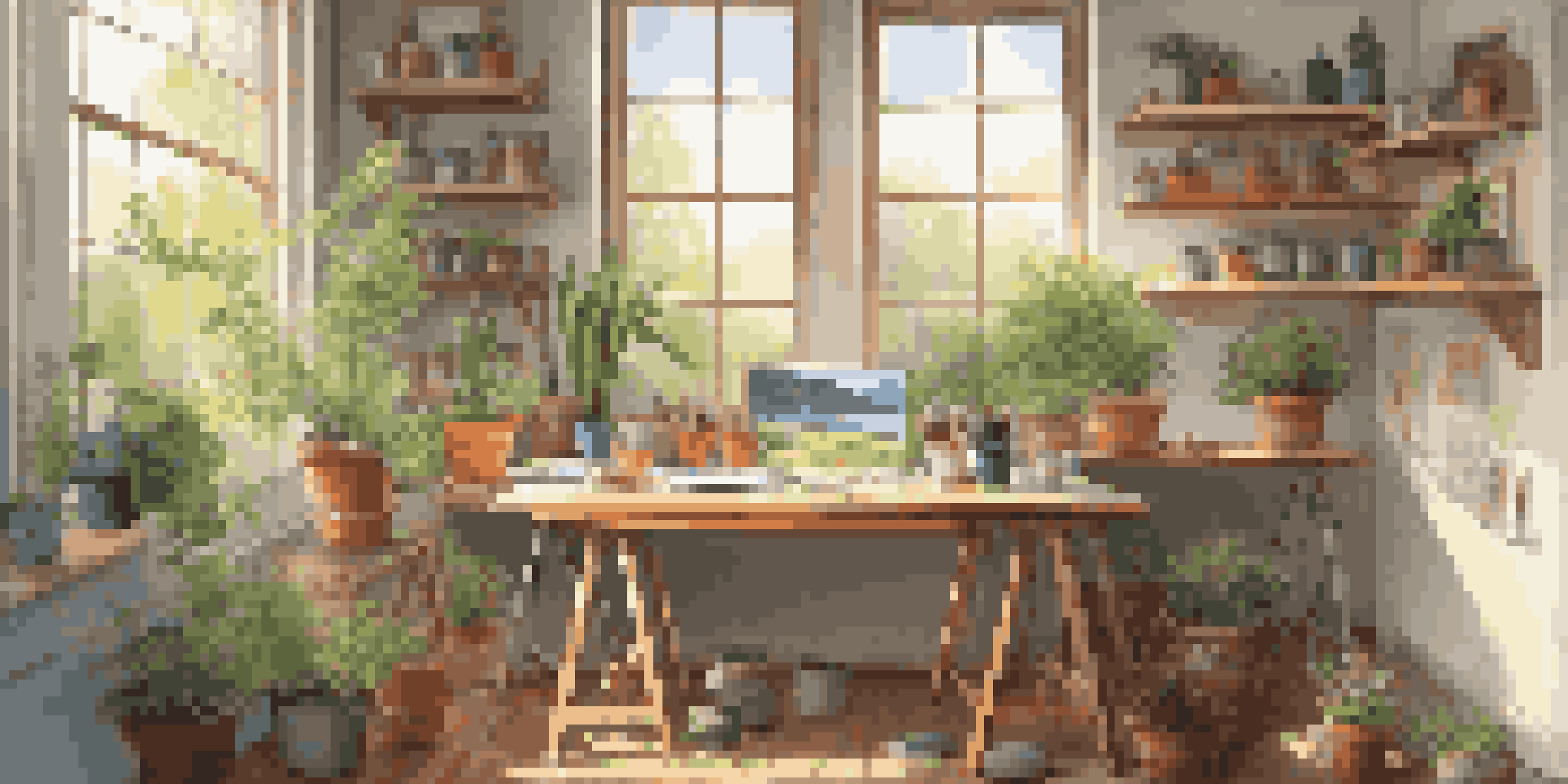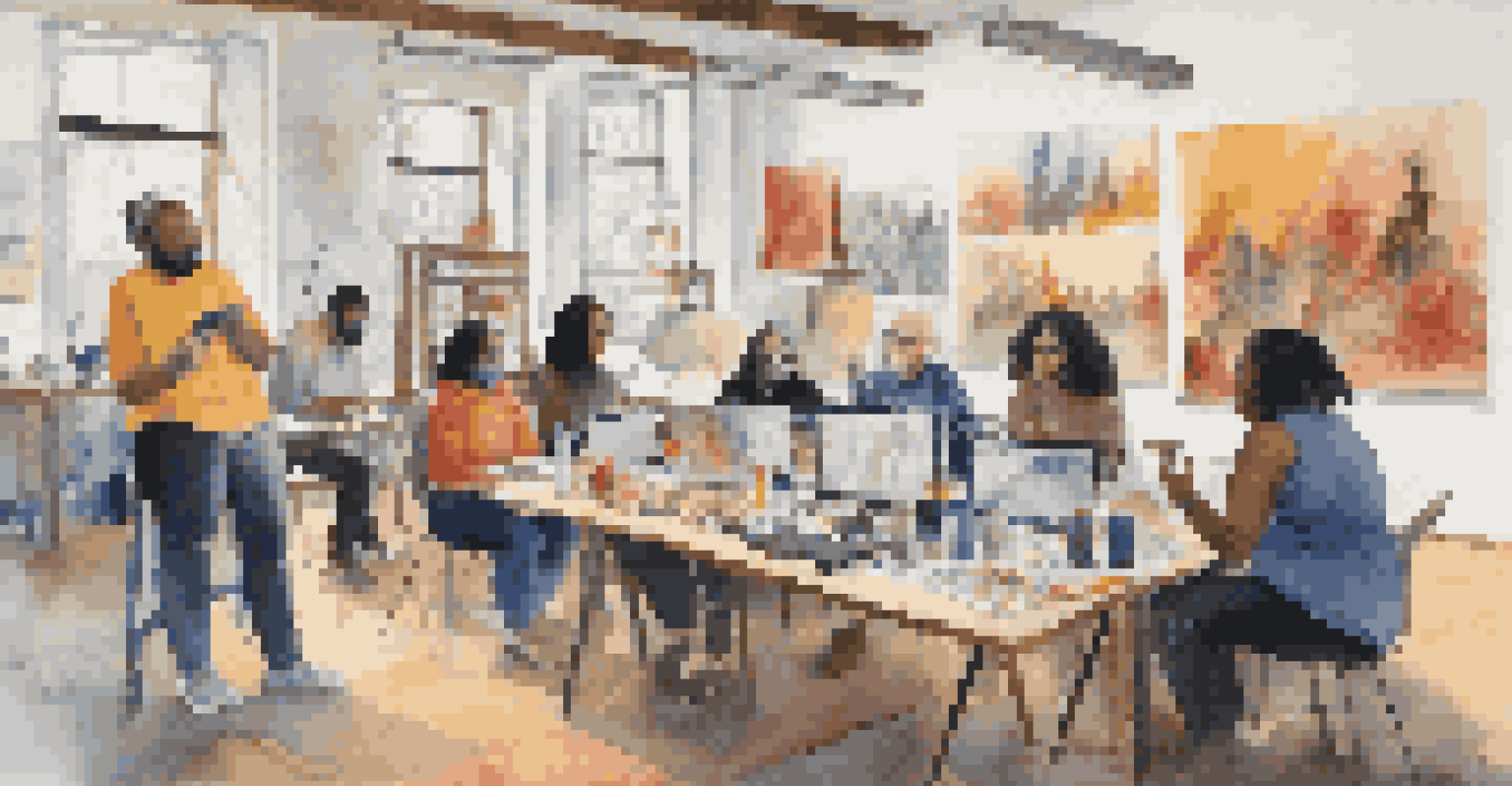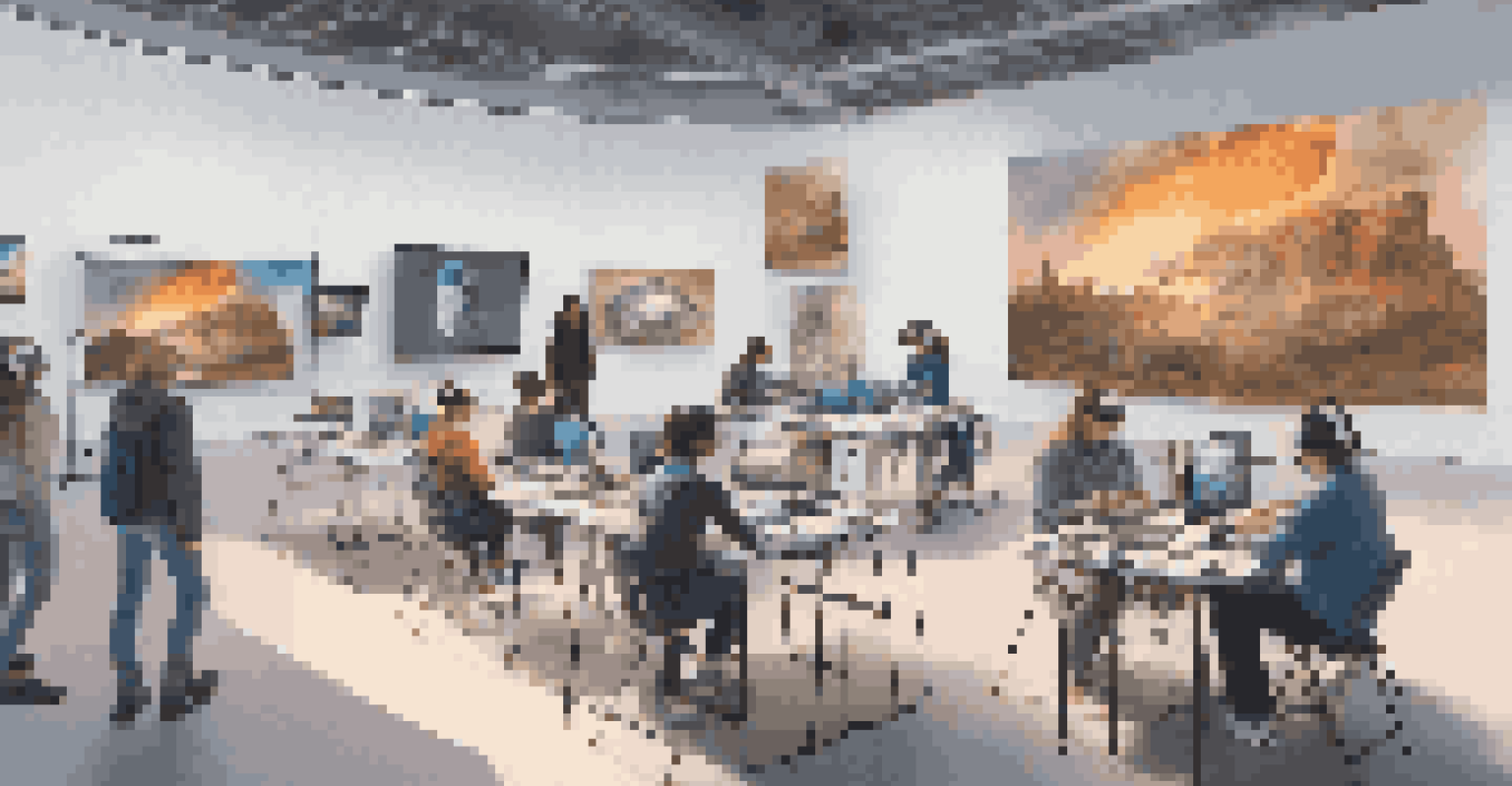How Online Workshops Are Transforming Art Education

Accessibility: Breaking Geographical Barriers in Art Learning
Online workshops have made art education accessible to everyone, regardless of their location. Students can now join classes taught by renowned artists from anywhere in the world, eliminating the need to travel. This democratization of learning opens doors for aspiring artists in remote areas who previously had limited access to quality instruction.
Creativity takes courage.
Imagine a budding artist in a small town who dreams of learning from a famous painter in a bustling city. With online workshops, this dream becomes a reality, fostering a more inclusive art community. By bridging the gap between artists and learners, online platforms are transforming how art education is perceived and accessed.
As a result, we’re witnessing a diverse range of perspectives and styles in the art world. This blend of influences enriches the learning experience, encouraging collaboration and innovation among artists from different backgrounds.
Flexibility: Learning at Your Own Pace and Schedule
One of the standout features of online workshops is the flexibility they offer. Unlike traditional classrooms with fixed schedules, online formats allow students to learn at their own pace, fitting their studies around their busy lives. This is particularly beneficial for those balancing work, family, or other commitments while pursuing their passion for art.

Picture a working professional who wants to explore painting techniques but can only spare a few hours each week. Online workshops cater to this need, providing recorded sessions and downloadable resources that can be accessed anytime. This flexibility empowers learners to take control of their education and avoid the stress of rigid timelines.
Accessibility for All Artists
Online workshops break geographical barriers, allowing aspiring artists to learn from renowned instructors regardless of their location.
Moreover, this self-paced learning encourages deeper engagement with the material. Students can revisit challenging concepts, practice techniques repeatedly, and truly absorb the lessons, leading to more substantial artistic growth.
Diverse Learning Formats: Catering to Varied Learning Styles
Online workshops come in various formats, which cater to different learning styles and preferences. From video tutorials and live Q&A sessions to interactive forums, these diverse offerings ensure that every student finds a method that resonates with them. This variety also helps keep learners engaged and motivated.
Art is not a thing; it is a way.
For example, a visual learner might thrive in a workshop filled with demonstration videos, while another student may prefer the real-time interaction of a live class. This adaptability allows instructors to reach a broader audience and tailor their teaching methods to suit the needs of their students.
Ultimately, this variety in learning formats enhances the overall educational experience, making it more enjoyable and effective. As students discover their preferred methods of learning, they become more invested in their artistic journey.
Community Building: Connecting Artists Worldwide
Online workshops foster a sense of community among artists, creating connections that transcend geographical boundaries. Participants from different parts of the world can interact, share ideas, and provide feedback on each other's work. This global network encourages collaboration and inspires creativity.
Imagine joining a workshop and instantly connecting with fellow artists from various countries, each bringing unique perspectives to the table. These interactions not only promote cultural exchange but also cultivate lasting friendships and professional networks that can benefit participants long after the workshop ends.
Flexible Learning Options
These workshops enable students to learn at their own pace, accommodating various schedules and commitments.
Building this supportive community is vital in the often solitary world of art. As artists share their experiences and challenges, they foster a sense of belonging, making their artistic journeys more fulfilling and enriching.
Cost-Effectiveness: Affordable Art Education for Everyone
Cost is often a significant barrier to accessing quality art education. Online workshops generally offer more affordable options compared to traditional classes, making art education accessible to a broader audience. This affordability allows aspiring artists to invest in their education without the financial strain.
Consider the difference in costs between attending an in-person workshop at a prestigious art school versus joining an online session. The latter often comes at a fraction of the price, enabling more students to explore their artistic potential without breaking the bank. This shift in pricing structures encourages more individuals to pursue their passion for art.
Additionally, many online workshops offer tiered pricing or scholarships, further reducing financial barriers. This inclusivity ensures that art education is not just a privilege for the few, but a possibility for everyone.
Innovative Technology: Enhancing the Learning Experience
The integration of technology in online workshops has revolutionized the way art education is delivered. Tools like virtual reality, augmented reality, and interactive platforms provide immersive experiences that engage students in new and exciting ways. These advancements enhance creativity and inspire innovative thinking among learners.
For instance, imagine a workshop where students can explore a 3D gallery of famous artworks from their homes. This kind of immersive experience not only makes learning more enjoyable but also deepens students' understanding of art history and techniques. Technology thus serves as a bridge connecting traditional art education with modern methods.
Diverse Formats Enhance Engagement
With a variety of learning formats available, online workshops cater to different styles, making art education more effective and enjoyable.
As technology continues to evolve, the potential for enriching art education grows exponentially. Instructors can leverage new tools to create dynamic and interactive learning environments that keep students excited and engaged.
Skill Development: Fostering Lifelong Learning in Art
Online workshops are not just about immediate skill acquisition; they also promote lifelong learning in the art world. With a focus on continuous improvement, these workshops encourage artists to explore new techniques, styles, and mediums regularly. This mindset cultivates a culture of growth and experimentation.
Think of an artist who initially specializes in watercolor painting but takes an online workshop to learn digital art. This exploration not only expands their skill set but also opens up new avenues for creativity and expression. Such opportunities foster adaptability and resilience in an ever-evolving art landscape.

Ultimately, this commitment to skill development prepares artists for a successful career. As they embrace new challenges and refine their abilities, they become more versatile creators capable of thriving in various artistic environments.